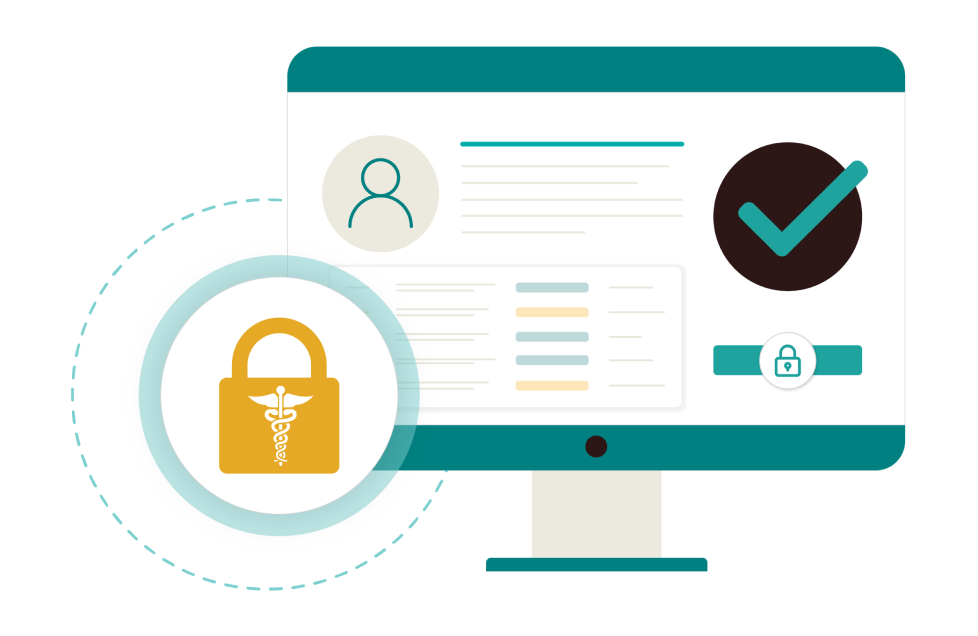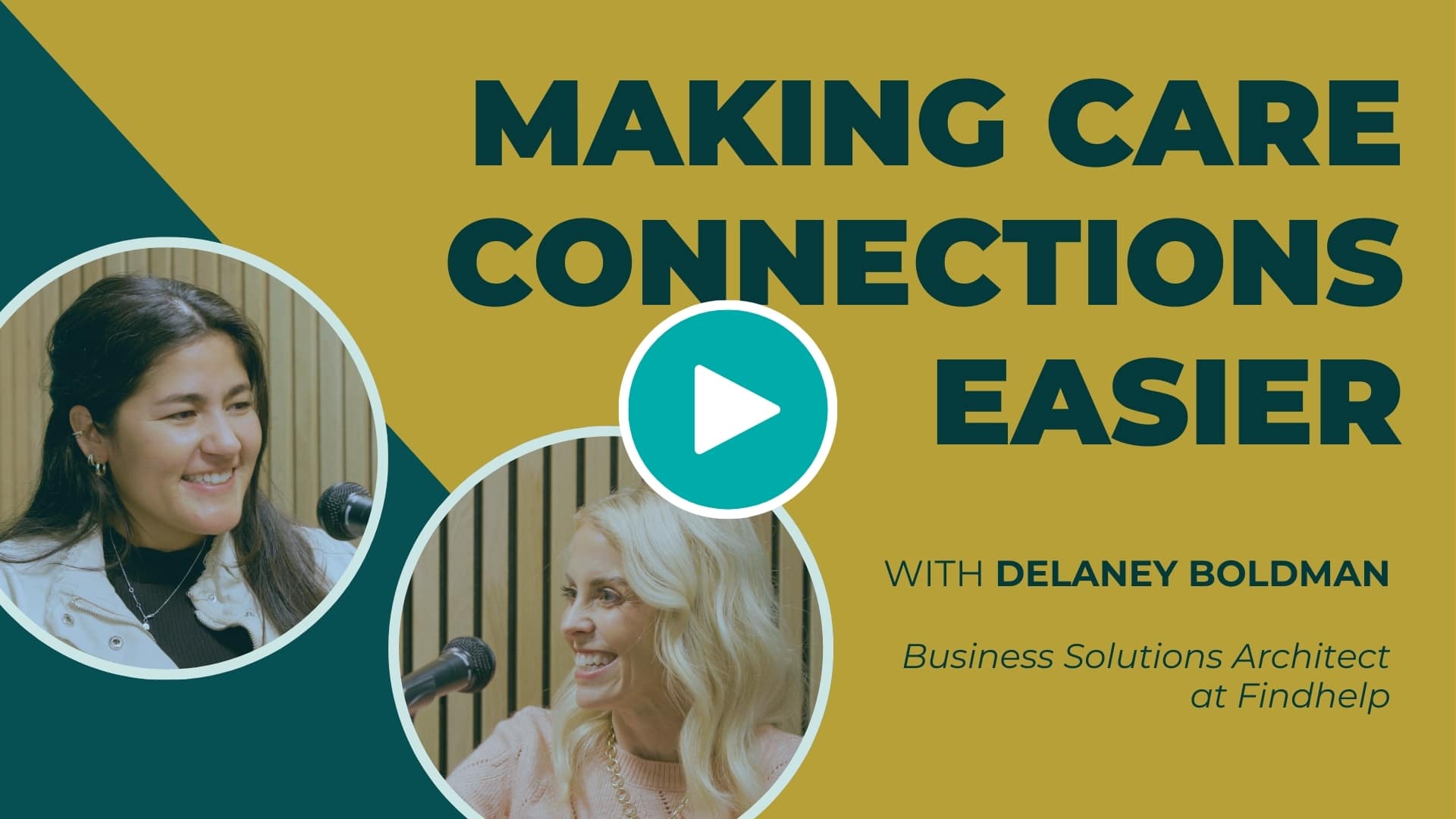Choose with Confidence: Your Social Care Platform Guide
The social care landscape is changing, with technology playing an increasingly pivotal role in connecting individuals with the resources they need. For organizations dedicated to improving health outcomes and addressing social needs, selecting the right platform is critical. This social care platform guide offers key considerations to help you find a partner that can amplify your impact.
In this post, we discuss platform considerations:
Network of social service providers and community-based organizations
Access for individuals to self-navigate
Interoperability & system integration capabilities
Analytics and reporting to drive informed decisionmaking
Security, privacy, and data ethics
Independent, peer-reviewed rankings from KLAS Research
1
The network: The foundation of your impact
An open, accurate, and active network of organizations ensures your referrals are successful and individuals get the help they need efficiently. Social care platform effectiveness hinges on its network quality, accuracy, and engagement. A powerful network is a dynamic ecosystem built on trust and partnership, driving successful referrals and positive outcomes. When evaluating a platform, consider the network’s structure and the vendor’s commitment to its quality.

✔️ Evaluating the network
- Flexibility and depth: A strong network combines a nationwide scope with deep, local relationships. Inquire if the vendor partners with a broad spectrum of organizations, as well as their relationships with trusted mainstays like 211s and United Ways. Also, look for specialty networks and fulfillment partners that address complex needs.
- Data accuracy and curation: Inaccurate information leads to failed referrals and erodes trust. Be cautious of vendors who rely solely on AI for this task, as automation without human oversight can lead to outdated or inaccurate program information. Look for a platform with dedicated curation that actively verifies information. The highest accuracy comes from vendors with direct organizational partnerships that manage program data at the source.
- Provider engagement: Leading vendors invest in their partners. The best platforms offer a suite of free tools to CBOs, including intake, reporting, closed-loop referral, and case management. This commitment transforms the relationship from simple listings to robust, collaborative partnerships.
2
Self-navigation: Build trust via your brand
A public-facing, self-service portal is a powerful way to promote social care service delivery, offering an accessible front door for individuals to find help on their own terms. This approach builds community-wide trust and provides invaluable insight into local needs.

✔️ Evaluating self-navigation capabilities
- The branded experience: To build trust, individuals should feel they are interacting with your organization, not an unfamiliar vendor. The gold standard is a fully customizable technology with your brand. A branded portal reinforces your role as a trusted community resource and encourages people to seek help.
- Dignity through anonymity: A leading platform champions dignity by allowing individuals to search for resources completely anonymously, without requiring an account or personal information. This gives people the agency to explore their options privately and safely, reducing stigma and promoting empowerment.
- Turn searches into strategic insight: Aggregated data from anonymous searches can be a strategic asset. Inquire about the platform’s ability to provide anonymized analytics that illuminate community needs, broken down by service type or ZIP Code. These insights help you identify and address service gaps, turning your portal into a strategic planning tool.
3
Interoperability: Integrating social care
Your platform must seamlessly connect with your system of record to eliminate data silos and enable coordinated, whole-person care. Prioritize vendors with bi-directional integrations using modern standards like FHIR. Interoperability seamlessly integrates social care into the existing clinical workflow, creating a single, unified view of an individual’s journey. Seek deep, workflow-native integration to enable a whole-person approach to health.

✔️ Evaluating interoperability capabilities
- Embedding into the clinical workflow: A leading platform should be accessible directly within your EHR. Ask vendors if they offer solutions like SMART on FHIR applications that embed the platform into the EHR interface, allowing staff to work without switching systems, and dramatically increasing efficiency and usage.
- Bi-directional data exchange: One-way data flow is no longer sufficient. The platform must not only send referral information out but also bring data outcomes and assessment data back into the EHR. This bi-directional loop provides the care team with full visibility from diagnosis to resolution.
- Adherence to modern standards: Secure data exchange requires modern technical standards. A forward-thinking vendor will prioritize FHIR (Fast Healthcare Interoperability Resources) APIs, which enable the advanced, app-based integrations needed for a seamless workflow.
4
Data: From information to insight
A social care platform should transform collected data into a strategic asset, providing quantifiable evidence of your impact. It allows you to understand community needs, optimize operations, and demonstrate the value of your work to key stakeholders and funders. Focus on a vendor’s ability to make your data accessible, understandable, and actionable.
✔️ Evaluating data & analytics capabilities
- Comprehensive reporting and analytics: Look for a platform with robust, configurable dashboards that track key performance indicators, like referral volumes, outcomes, network utilization, and resolution times.
- Measuring impact and demonstrating ROI: Securing funding requires concrete evidence of success. Ask how the platform measures outcomes and demonstrates return on investment (ROI). A leading platform should provide tools to track progress for individuals and for whole populations.
- Data ownership and control: Before entering into any partnership, clarify the terms of data ownership. Scrutinize the vendor’s policies to ensure you retain unambiguous control over your information.
5
Upholding trust: Security, privacy, & ethics
Social care data is profoundly personal. Protecting it demands technical security alongside unwavering ethical principles. A trustworthy partner must defend your data against theft while guaranteeing it will never be commodified or sold to companies that would profit from it.

✔️ Evaluating security & ethical capabilities
- Foundational security measures: Confirm that a vendor’s platform meets non-negotiable standards like full HIPAA compliance, end-to-end data encryption, and granular, role-based access controls.
- No sale of data: Some vendors monetize data by selling it to marketing firms and data brokers. In social care, this practice is an exploitation of vulnerable information. Demand an explicit, contractual guarantee that the vendor will never sell, rent, or otherwise transfer personally identifiable information.
- Transparent business practices: A trustworthy partner operates with transparency. A vendor should be open and forthcoming about their security protocols and privacy policies. Hesitancy to discuss these details is a major red flag.
6
KLAS Research: The industry benchmark
A vendor’s claims should always be verified by the unbiased voice of their customers. KLAS Research provides this crucial perspective by interviewing thousands of healthcare professionals to measure real-world performance and satisfaction. This third-party validation provides the confidence that you are choosing a partner who is technologically sound AND deeply committed to their clients’ success.
✔️ Leveraging KLAS in your evaluation
- A holistic view of performance: KLAS rankings assess the entire customer experience, evaluating vendors on product quality, implementation support, and overall customer satisfaction. This gives you insight into what it’s actually like to partner with a specific vendor, from the initial sale to day-to-day operations.
- The “Best in KLAS” distinction: This prestigious award signifies a true market leader. For social care platforms, the most relevant category is “Social Determinants of Health (SDoH) Networks.” The vendor with this top honor has been rigorously vetted by their own customers as the best-performing solution.
- Confident, data-backed decisions: Use the KLAS reports to build your shortlist and validate sales claims. High KLAS rankings demonstrate a proven track record of delivering on their promises and supporting customers.
- For more information on rankings and reports, visit the KLAS Research website.
The next step: From information to action
Choosing a social care platform is a significant decision that will have a lasting impact on your organization and the individuals you serve. By carefully considering these key factors, you can make an informed choice that empowers your team and enhances your ability to deliver high-quality, whole-person care.
Ready to see how a leading social care platform can transform your work? Schedule a personalized demo today and take the first step towards a more connected and impactful future.








